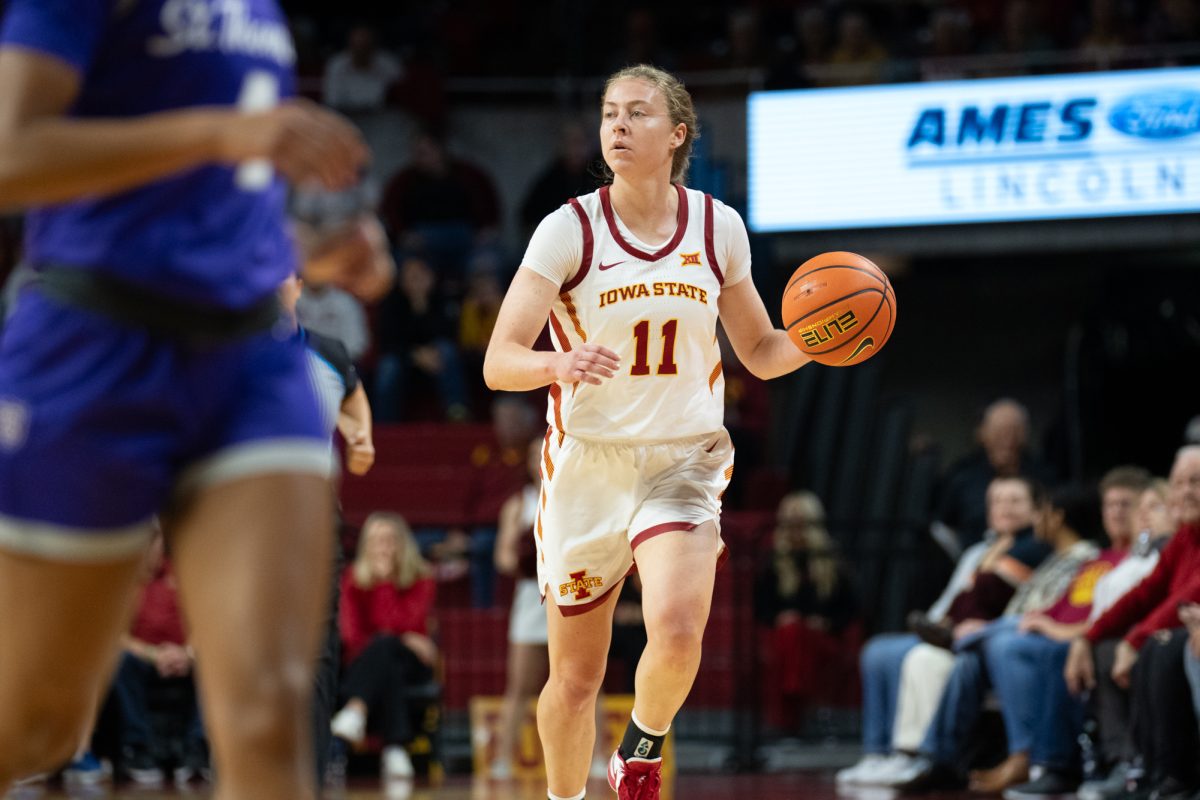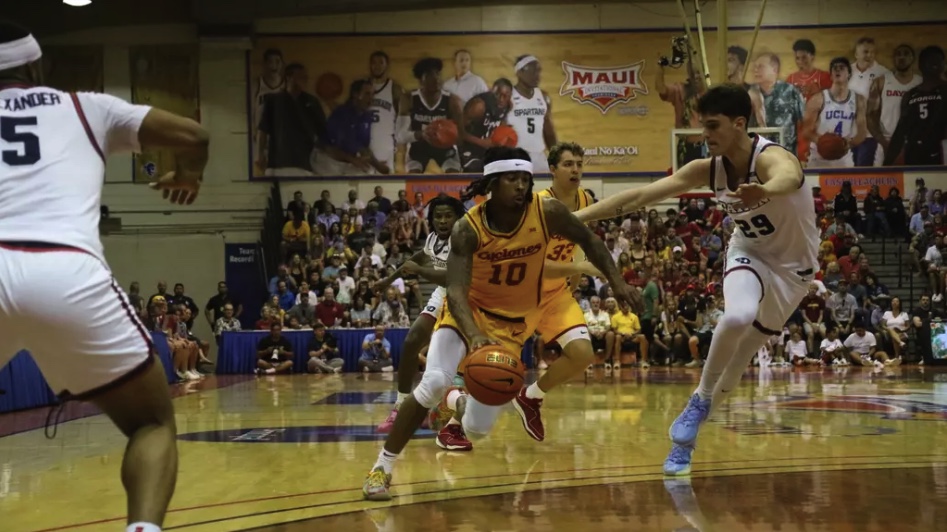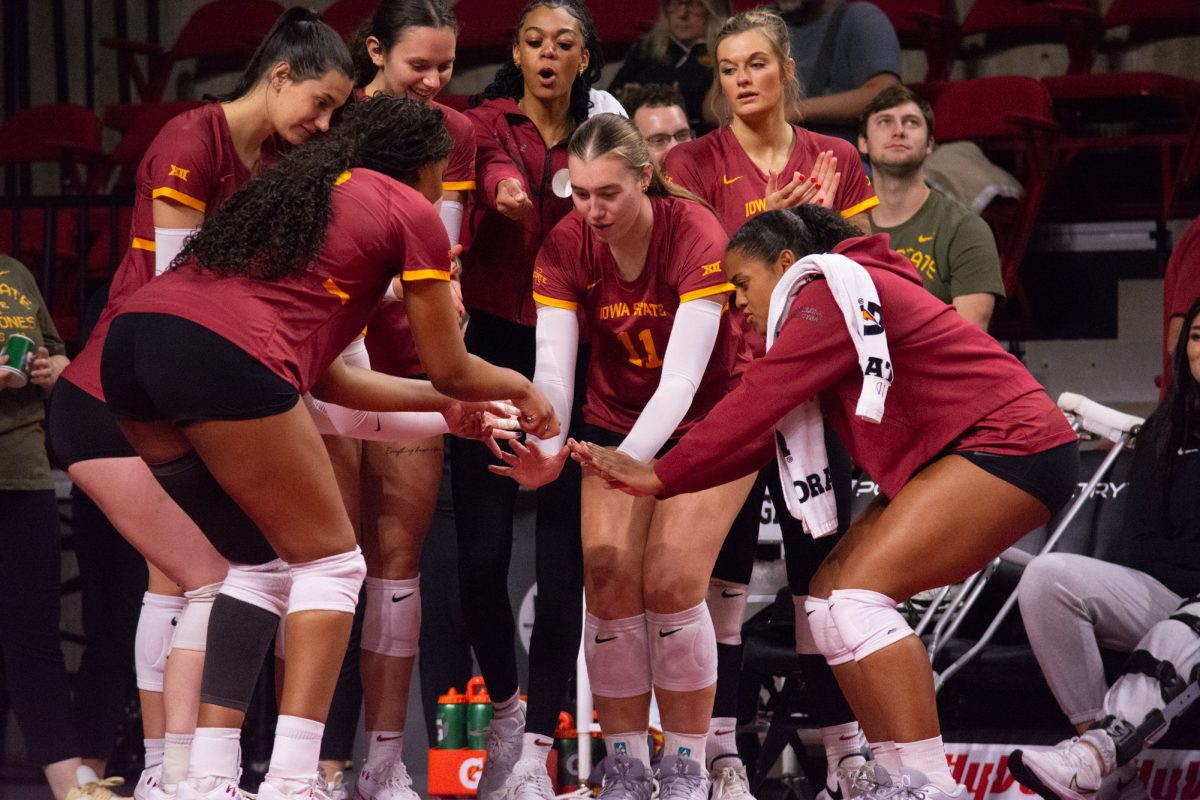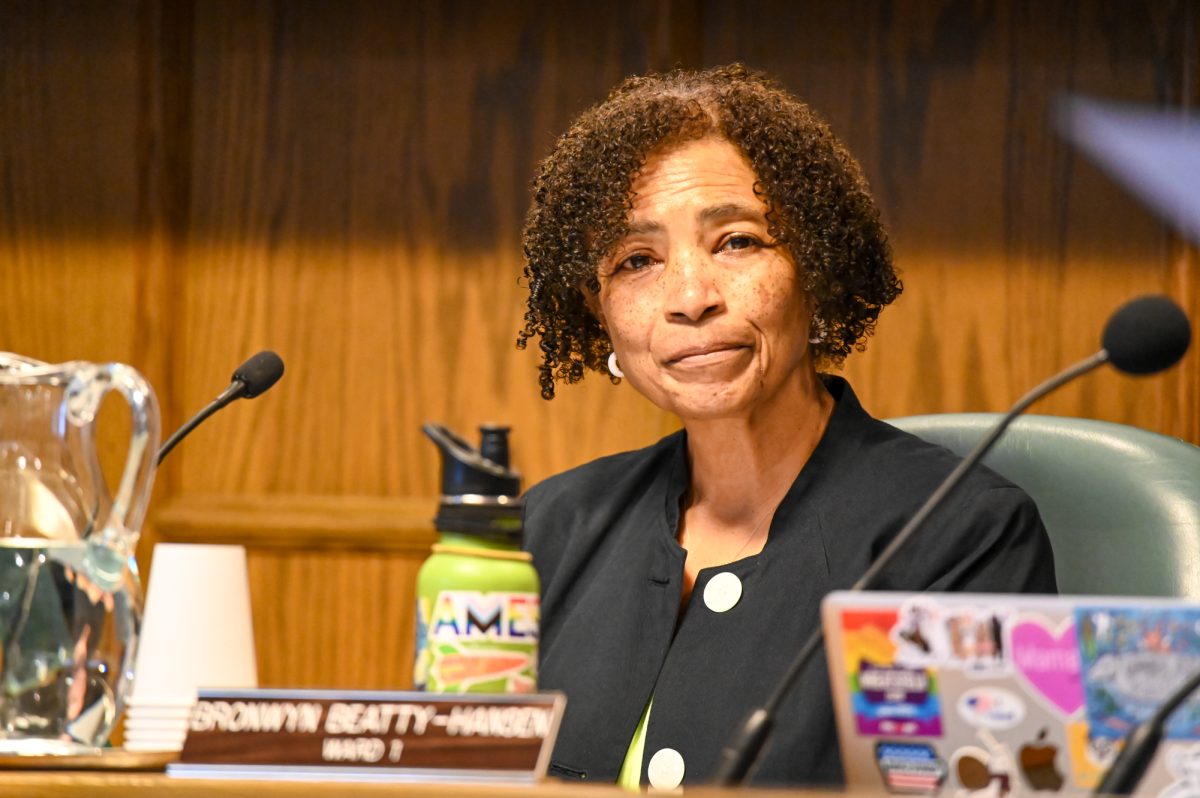Finding their roots
November 5, 2002
In a six-acre plot south of Mortensen Road, ISU students learn hands-on how organic crops are grown.
These students are part of the ISU Student Organic Farm, which is completely run and operated by students.
“We grow vegetables, herbs, small fruits like strawberries, and flowers,” said Pernell Plath, a graduate student in sustainable agriculture.
Plath started working at the farm as an undergraduate in anthropology.
“In 1997, it was just a community garden, and we did not sell anything. We had no equipment, no structure. We started with nothing,” Plath said.
The farm has moved from its original location and has “grown vigorously,” said Ricardo Salvador, associate professor of agronomy and adviser to the group.
“The group has very concrete ideas with the land and were very methodical,” Salvador said.
The student organic farm sells most of its crops through Magic Beanstalk, a community-supported agriculture group. Magic Beanstalk is a group of people, called “eaters,” who agree to buy directly from the farmer, Salvador said.
He said the eaters take a risk because they pay the farmers even though the farmers might not have the crop.
“The agreement is the farmers have a regular income. The farmers agree to grow the food in the way the eaters want,” Salvador said.
What is not sold through Magic Beanstalk is then sold to local grocery stores, like John’s Natural Foods, 114 Washington Ave., and the Ames downtown farmers’ market, Plath said.
Brian Keehner, senior in agronomy, said all of the profits from crop sales go back into the farm. The money is usually generally used “to keep [the farm] running,” Keehner said.
Growing organic crops is different than conventional crops, Plath said.
“It’s different because [in commercial farming] the agro-ecosystem is out of balance. It’s like a drug addiction. The system is dependent [on chemicals],” Plath said.
She said the students bring the ecosystem back into balance by building up the soil’s fertility.
Keeping the six-acre plot pest-free and healthy is a matter of experimentation, Plath said.
“We learn a lot of lessons,” she said.
Keehner said it is not only the land that is an experiment.
He said the Student Organic Farm is “a hands-on learning experiment in selling and producing [crops].”
Since its conception in 1997, everyone agrees the Student Organic Farm has grown significantly. The number of people working on the farm has increased.
They have also added a hoop house, in which they grow salad greens and cold-hardy vegetables during this time of the season, Plath said. There are also new sheds, a tractor, more perennials, and an outdoor classroom.
Since the farm started selling its crops it has had “extreme success marketing their product,” Salvador said.
Organic produce often costs more than conventionally grown produce because “organically grown food takes much more to manage,” Salvador said.
There is some worry the new standards being placed on organically grown food may change the way the student farm and many other organic farms are managed.
Plath said the new standards are specific to how and when crops are grown.
“Some things we use might change,” she said.
Keehner said even with new standards, the Student Organic Farm is still going to be a success. “It’s what you put into it,” he said.






